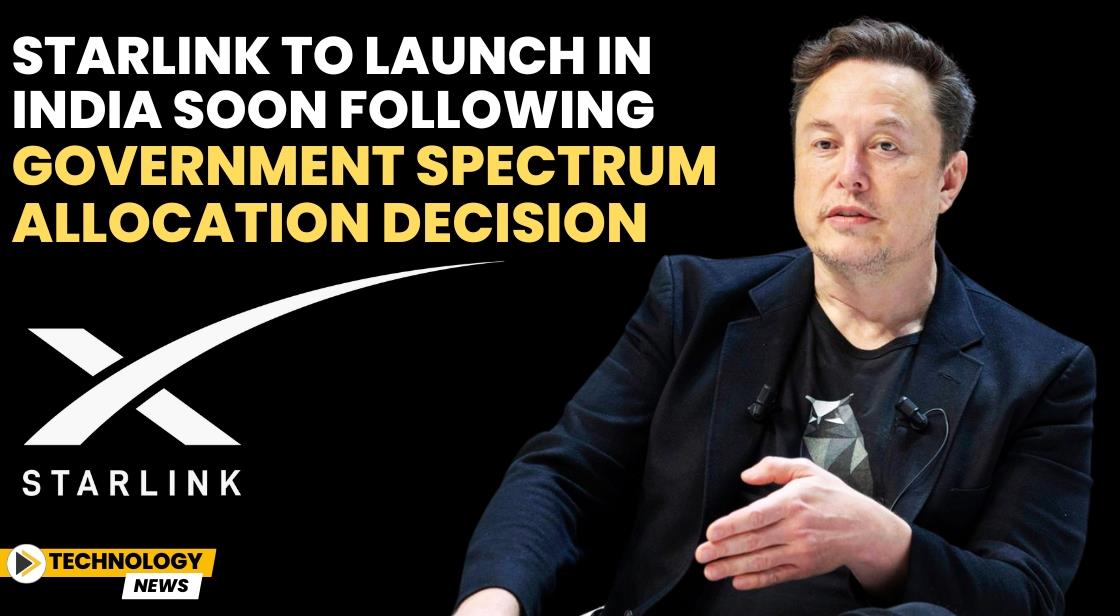Starlink to Launch in India Soon Following Government Spectrum Allocation Decision

News Synopsis
The Indian government has recently made a pivotal announcement regarding the allocation of spectrum for satellite broadband services, indicating a promising development for the launch of Elon Musk's Starlink in India.
Instead of utilizing the traditional auction process, the government has opted for an administrative allocation of spectrum, marking a significant shift in how satellite broadband will be rolled out in the country.
This decision comes on the heels of Musk's critique of the auction strategy proposed by Mukesh Ambani, a prominent billionaire and the head of Reliance Industries.
Growing Satellite Broadband Market
The ongoing debate surrounding the method of awarding spectrum for satellite services in India is crucial, particularly as the market is projected to experience a remarkable 36 percent annual growth, with expectations of reaching USD 1.9 billion by 2030. As the landscape evolves, the approach to spectrum allocation will play a vital role in shaping the competitive environment for satellite broadband providers.
Elon Musk's Advocacy for Administrative Allocation
Starlink has been vocal in advocating for the administrative allotment of licenses, a method that aligns with global trends. Conversely, Reliance, under Ambani's leadership, has favored an auction model to ensure fair competition among providers, citing the need for regulatory frameworks in Indian law that currently do not support individual satellite broadband services.
Indian Government's Official Announcement
Telecom Minister Jyotiraditya Scindia made the announcement during an event in New Delhi, affirming that spectrum would be allocated administratively per Indian regulations, with pricing determined by the telecom regulatory authority. Scindia emphasized that opting for an auction route would distinguish India from global practices, which could potentially hinder the growth of the satellite broadband sector.
Elon Musk's Positive Response
Expressing his appreciation for the government's decision, Elon Musk took to social media to convey that "Starlink will strive to serve the people of India to the best of its ability." This positive affirmation signals Musk's commitment to expanding Starlink's services in the Indian market.
Controversy Surrounding Auctioning Spectrum
As reported by Reuters, Reliance has contested the consultation process conducted by the Indian telecom regulator, which had suggested that home satellite broadband spectrum should be allocated without going through an auction. Reliance has called for a reevaluation of the regulatory process, voicing concerns over the implications of the current administrative allocation strategy.
Musk further pointed out that any move to auction the spectrum would be unprecedented. He noted that the International Telecommunication Union (ITU) has historically classified this spectrum as shared for satellite use. India, being a member of the ITU, is bound by its treaty, which governs satellite spectrum allocation to promote rational and efficient use of this limited natural resource.
Airtel and Eutelsat's Stance
Sunil Mittal, co-chair of the global satellite group Eutelsat, has publicly supported the auction model, particularly for satellite companies looking to expand their services in urban regions and target elite retail customers. He stressed that such companies should follow traditional telecom practices by acquiring licenses and purchasing spectrum through auctions.
Earlier in 2023, both Eutelsat's OneWeb and Airtel raised concerns regarding the potential auctioning of the spectrum in their submissions to the Indian government. While Musk's Starlink and other global competitors like Amazon's Project Kuiper advocate for administrative allocation, they emphasize the necessity of shared access to this vital natural resource among satellite service providers.
Conclusion
The Indian government's decision to allocate spectrum administratively represents a significant milestone in the rollout of satellite broadband services, paving the way for Starlink's launch in the country. With the satellite broadband market set for substantial growth, the approach to spectrum allocation will likely influence competition and service availability in the coming years.
You May Like









